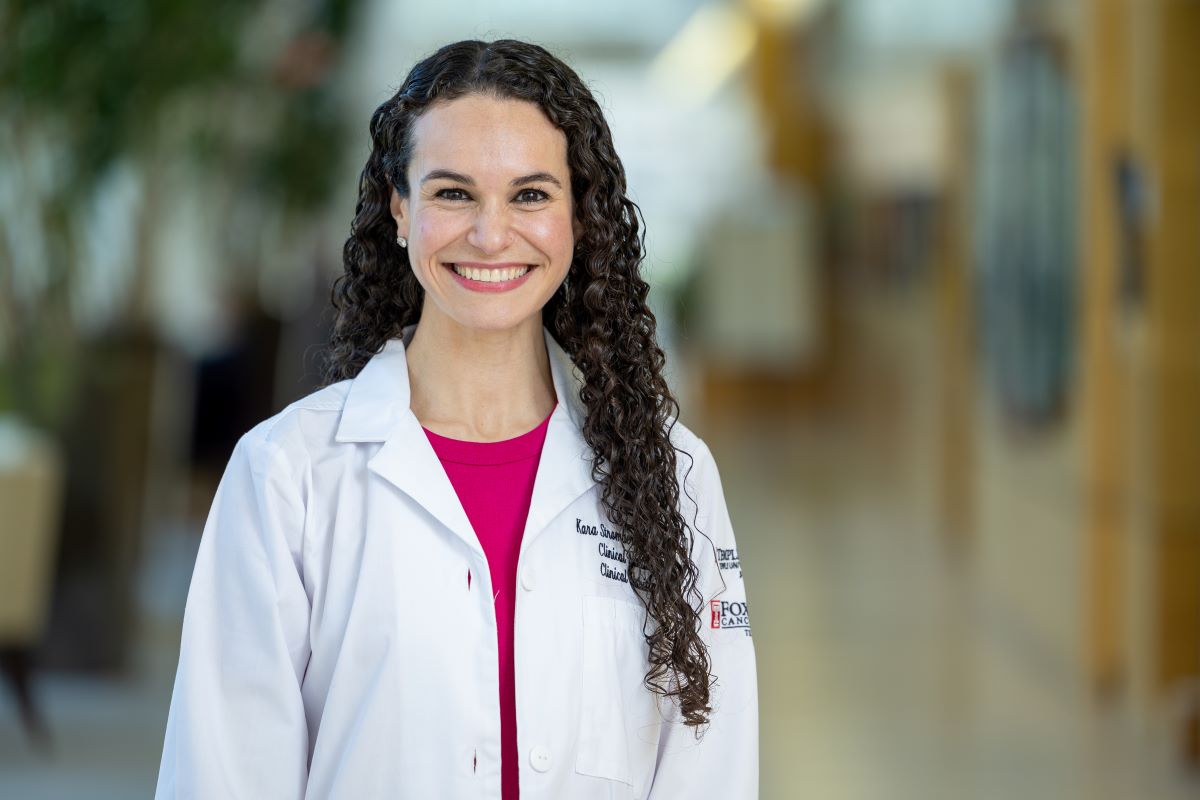
PHILADELPHIA (June 20, 2025) — A pilot program developed to educate healthcare providers about patient chemosensory dysfunction significantly improved providers’ knowledge and confidence in providing support to patients, according to a recent publication on the program from clinicians and researchers at Fox Chase Cancer Center.
Chemosensory dysfunction is the alteration or loss of taste and smell as a result of being treated with chemotherapy. This side effect is prevalent among patients being treated with chemotherapy, with 93% complaining of changes in their sense of taste and 60% complaining of changes in their sense of smell. These alterations can contribute to reduced desire for food and reduced quality of life, as well as weight changes or malnutrition.
“Unfortunately, this side effect is something that we see in clinical practice all the time, but clinicians aren’t being formally educated on it. And because we’re not appropriately educated, we can’t have these meaningful conversations with our patients to navigate it,” said Kara Stromberg, MS, RD, LDN, CDCES, one of the lead authors on the study, which was conducted with researchers at Fox Chase and other institutions. Stromberg is Director of Clinical Nutrition and Nutrition Research at Fox Chase and Temple University Hospital – Jeanes Campus.
In the study, 38 oncology clinicians initially reported limited knowledge of and education in chemosensory function and low confidence in managing taste and smell changes in patients. Many adopted a “wait-and-see” approach, citing the lack of pharmacological treatments. To address this educational gap, Stromberg collaborated with scientists specializing in taste and smell and clinicians to create an effective pilot program to inform healthcare providers about treating patients with this condition.
To make the pilot program more accessible to busy providers, Stromberg and colleagues created a 15-minute podcast that discussed important factors to be considered when evaluating a patient with chemosensory dysfunction. After listening to the podcast, clinicians reported a four-fold increase in confidence in supporting these cancer patients.
Stromberg said the next step in this process is to embed chemosensory education into areas like nutrition, survivorship, and other healthcare fields that intersect with cancer care so that clinicians can better recognize, document, and respond to these symptoms.
“I really hope what comes of this pilot program is that it starts the conversation around addressing this issue with our cancer patients so that their quality of life can improve,” said Stromberg. “Reframing taste and smell not as minor nuisances but as critical facets of patient well-being represents a shift toward more comprehensive oncology care.”
The study, “Education Is Treatment: Integrating Chemosensory Dysfunction Education in Oncology Care,” was published in the Journal of Cancer Education.